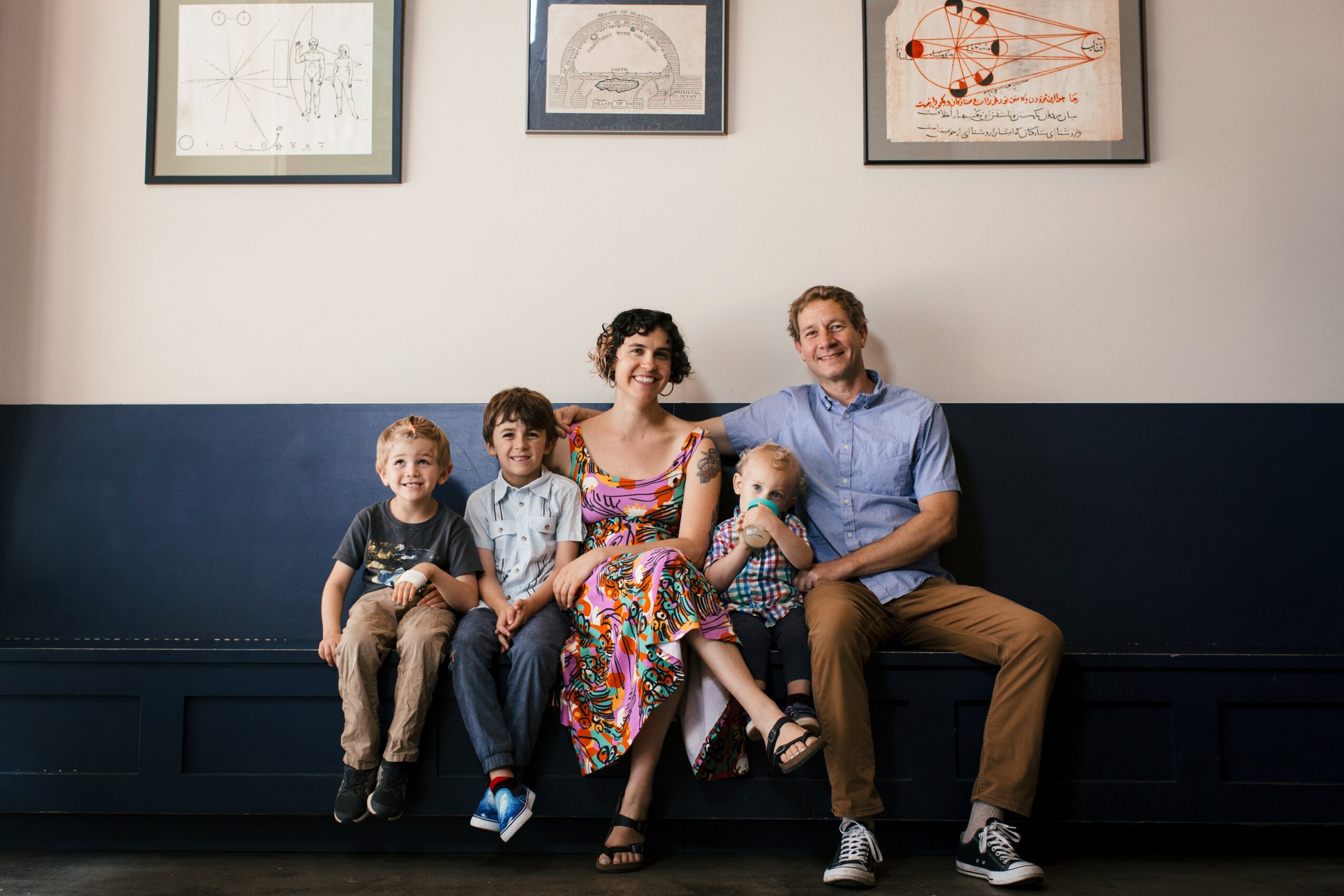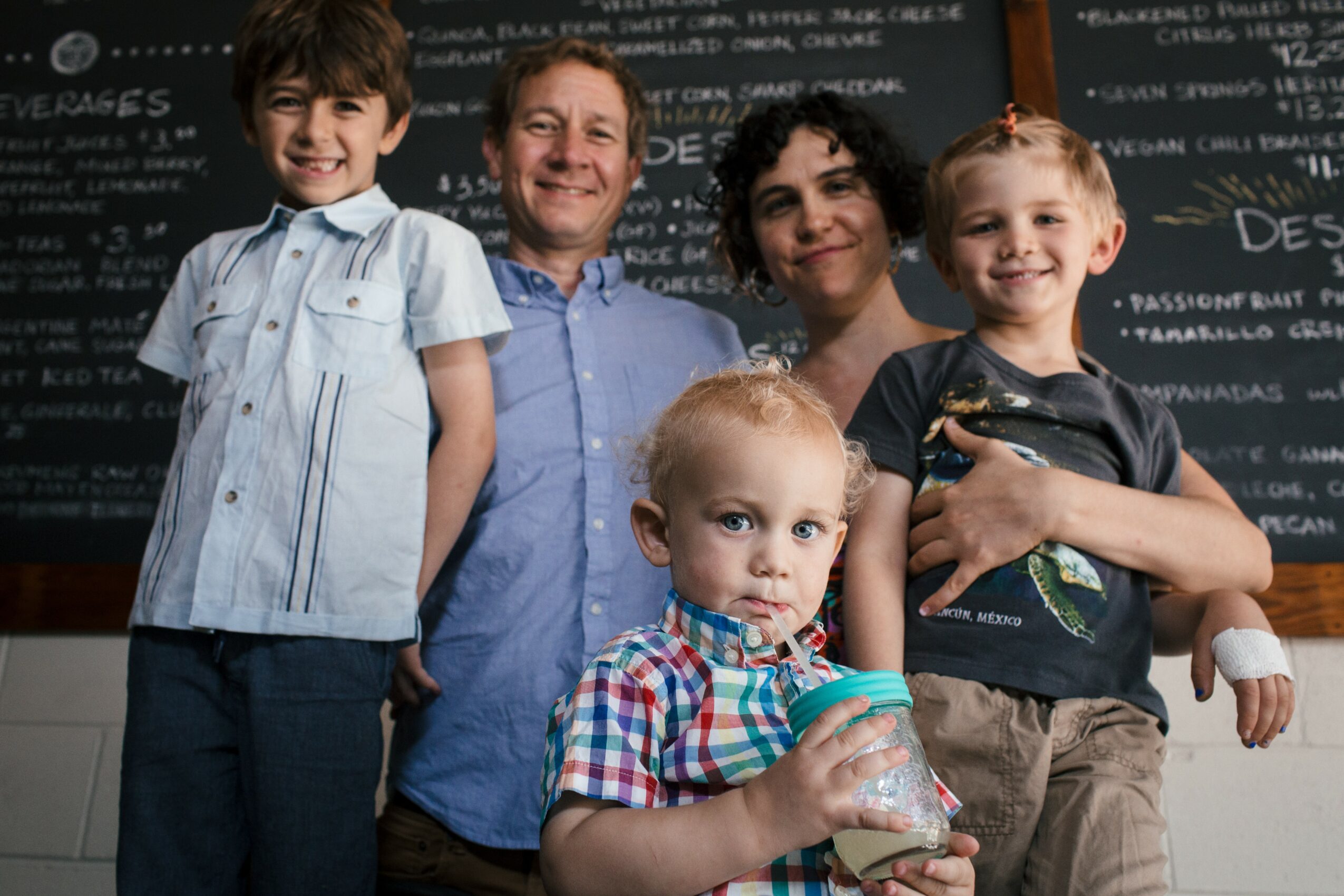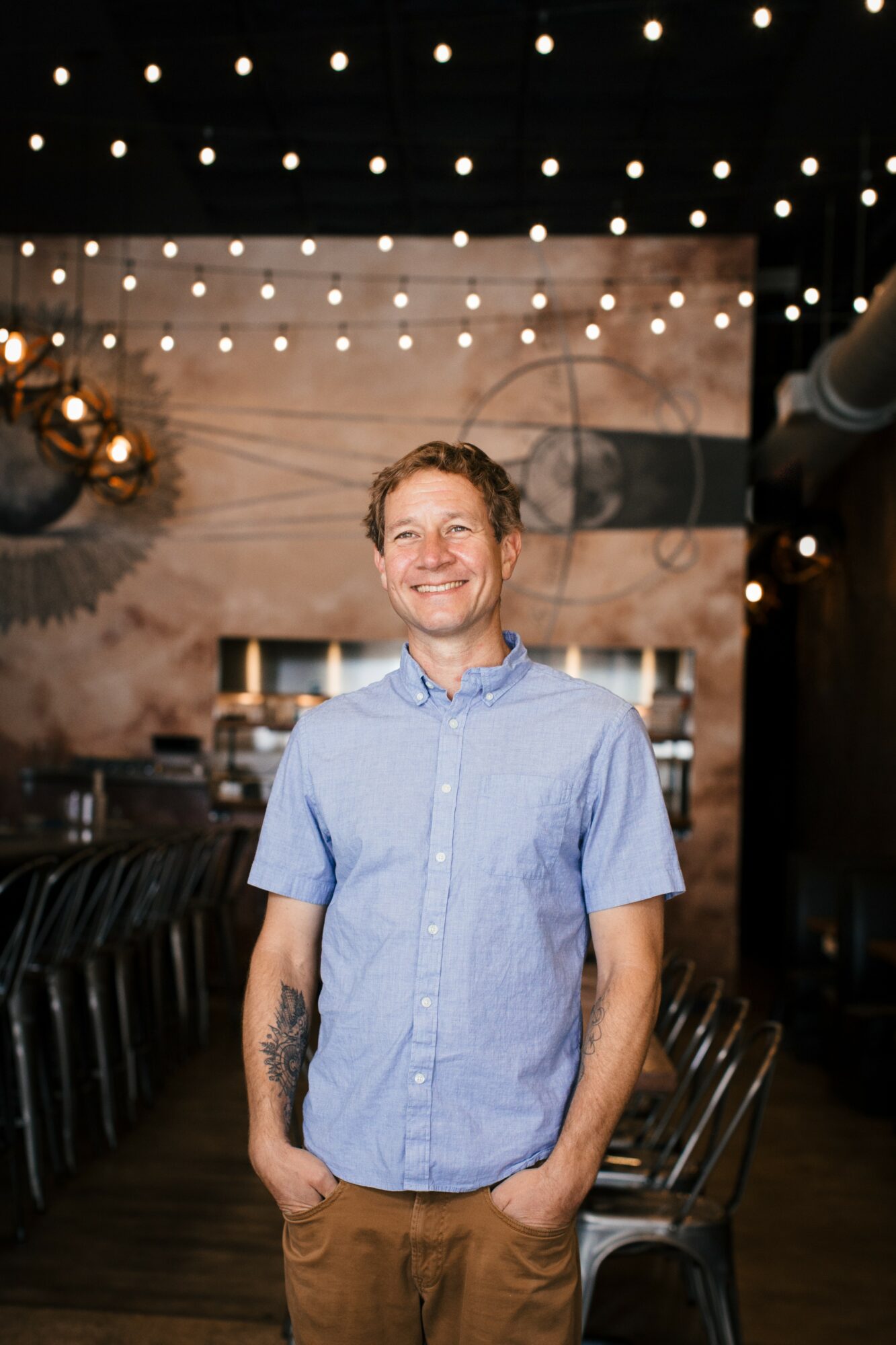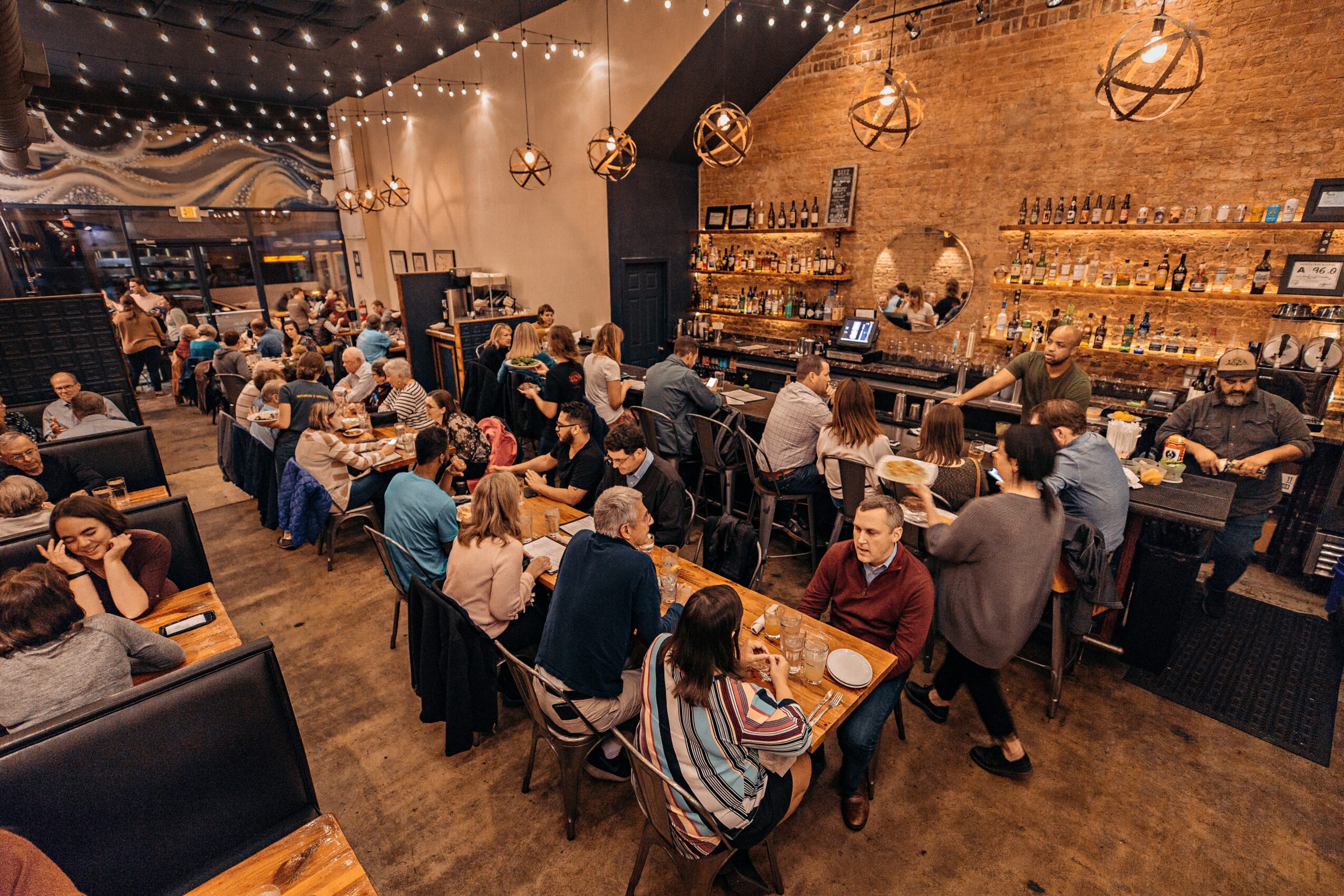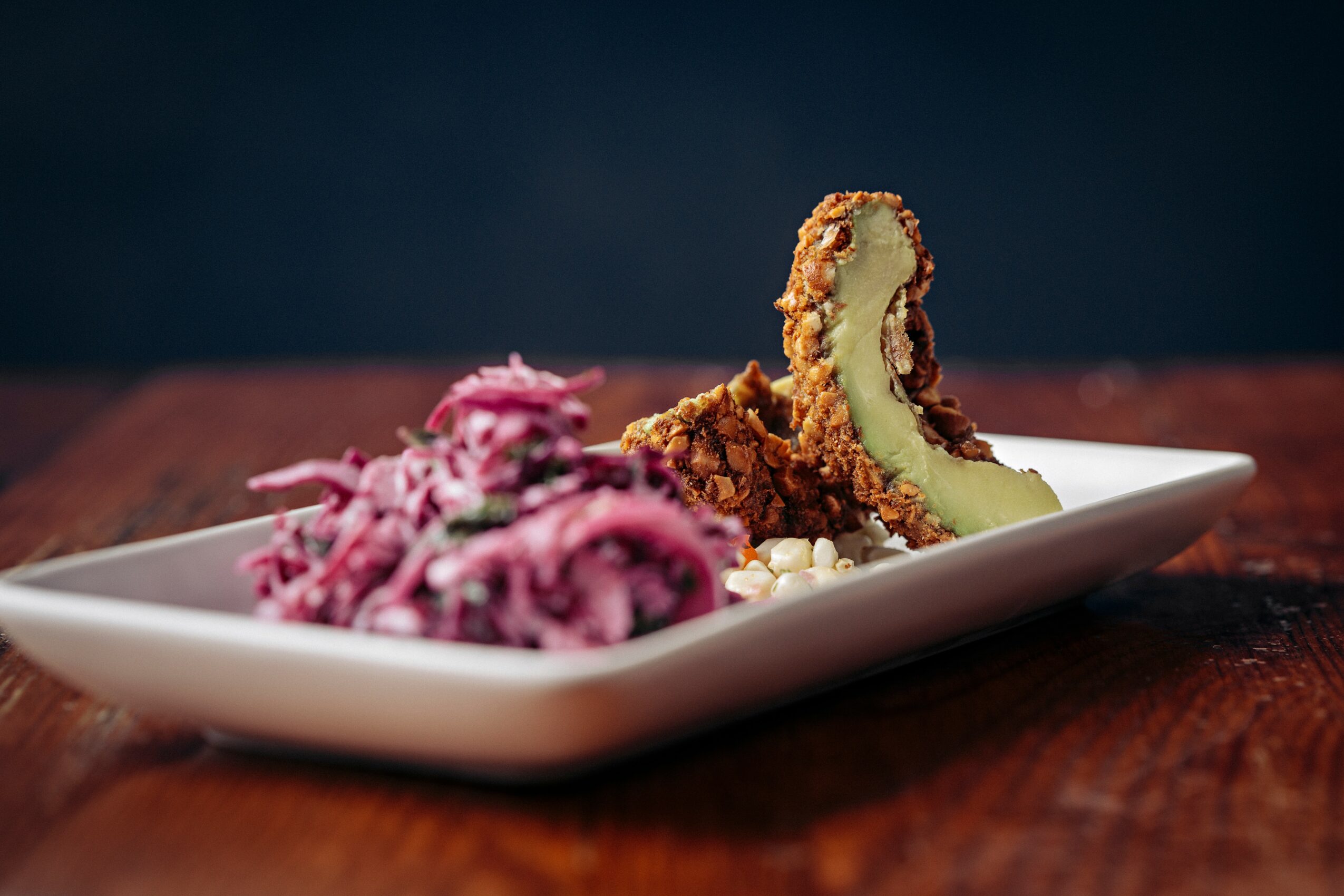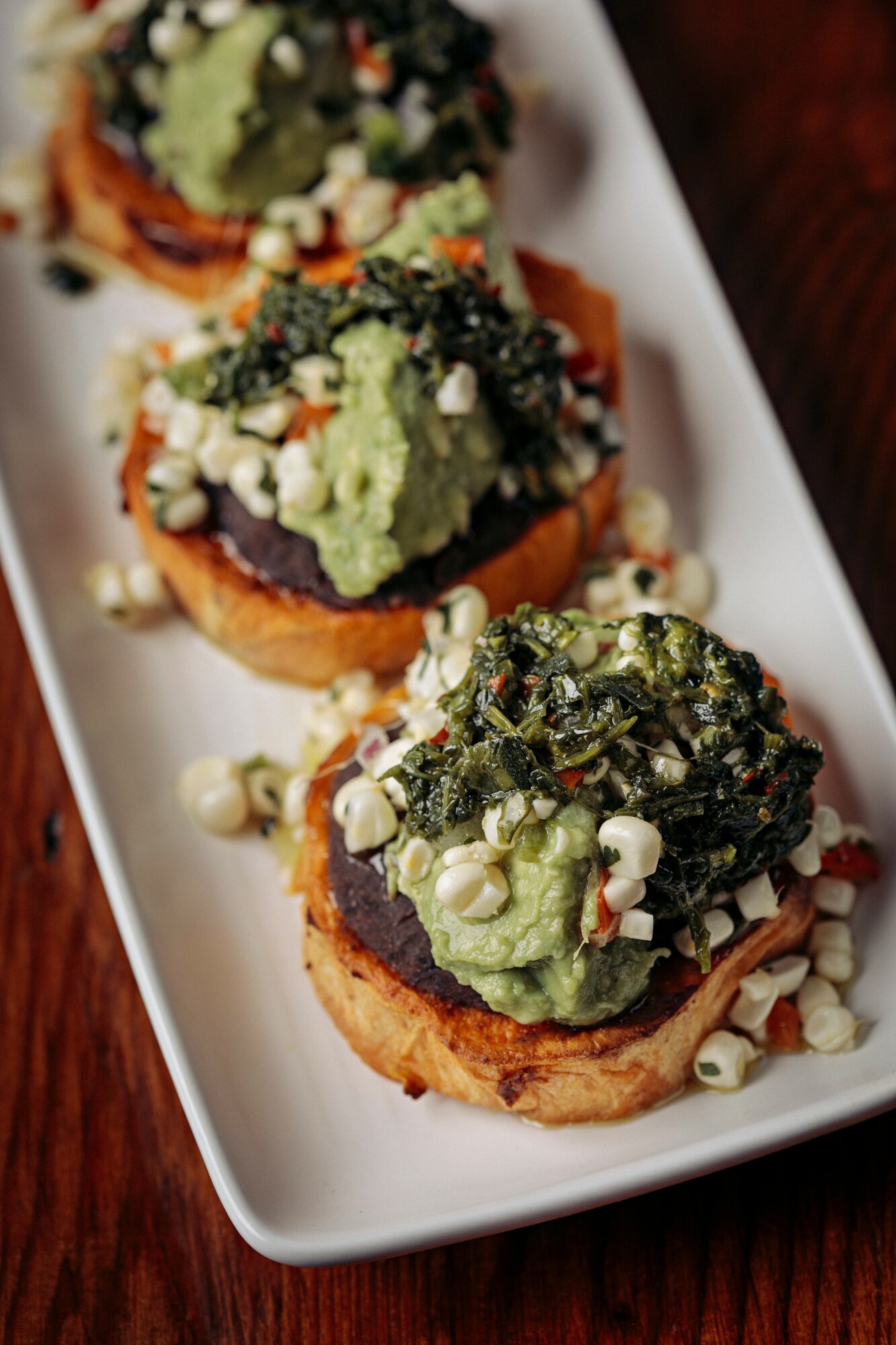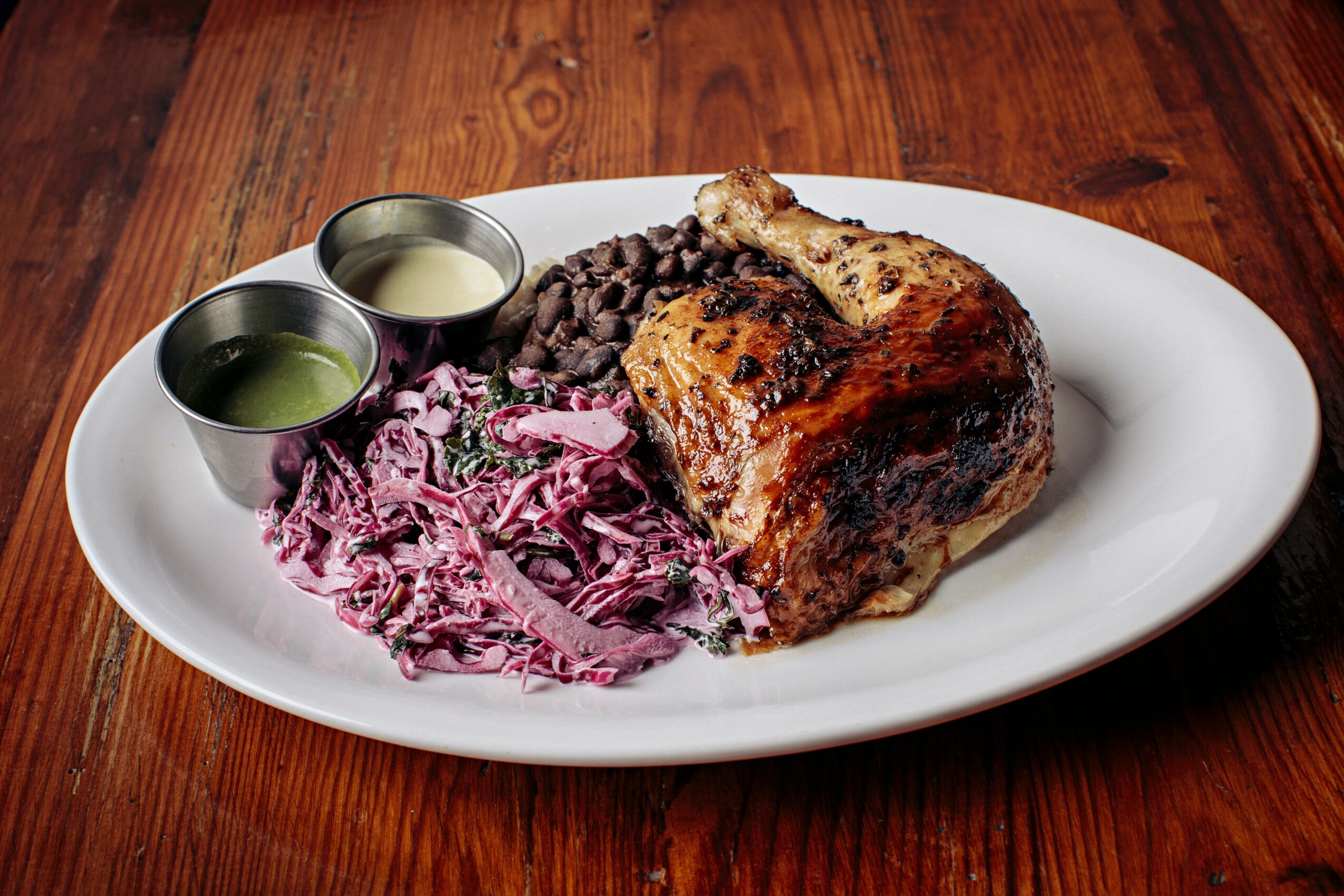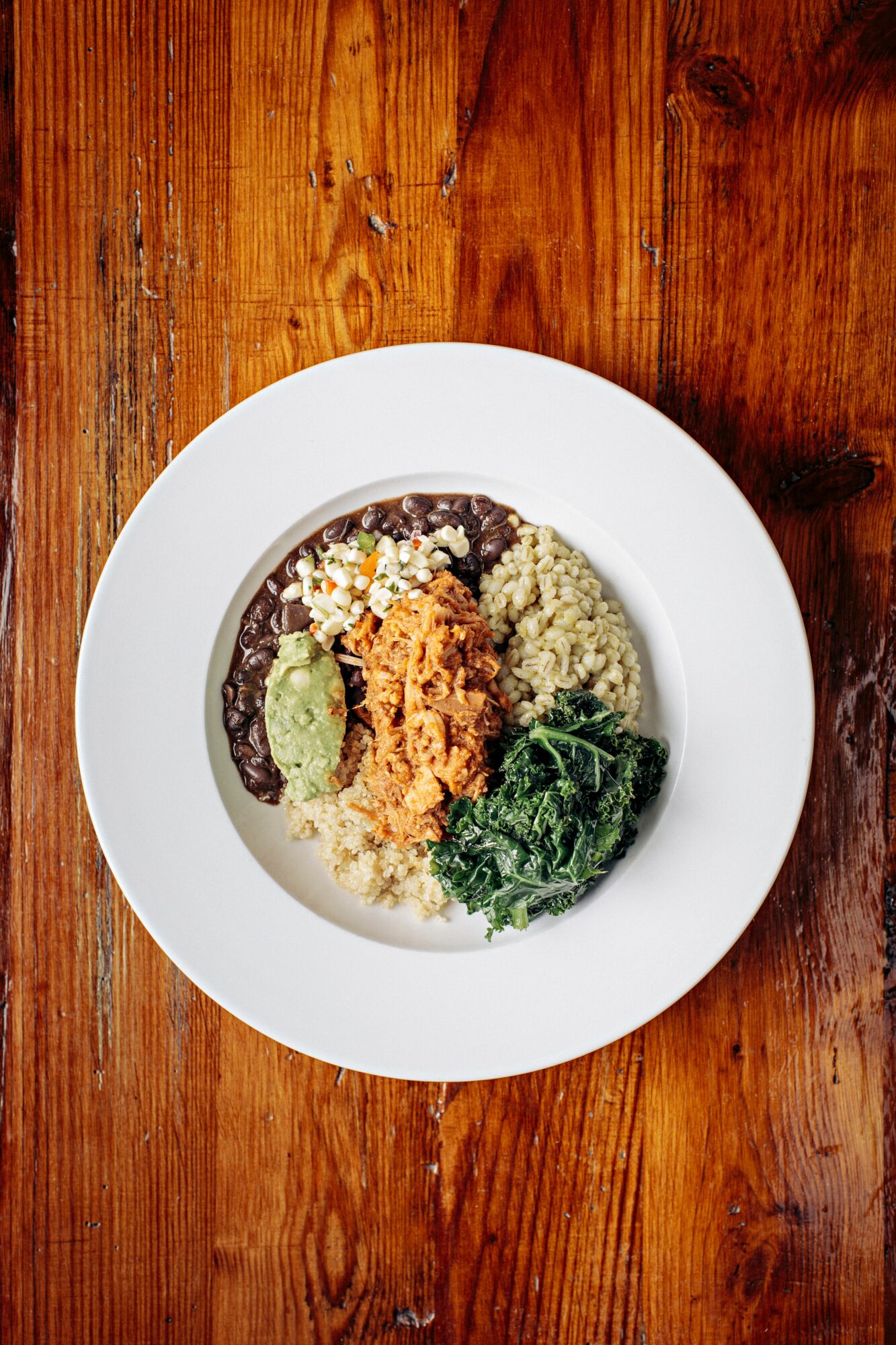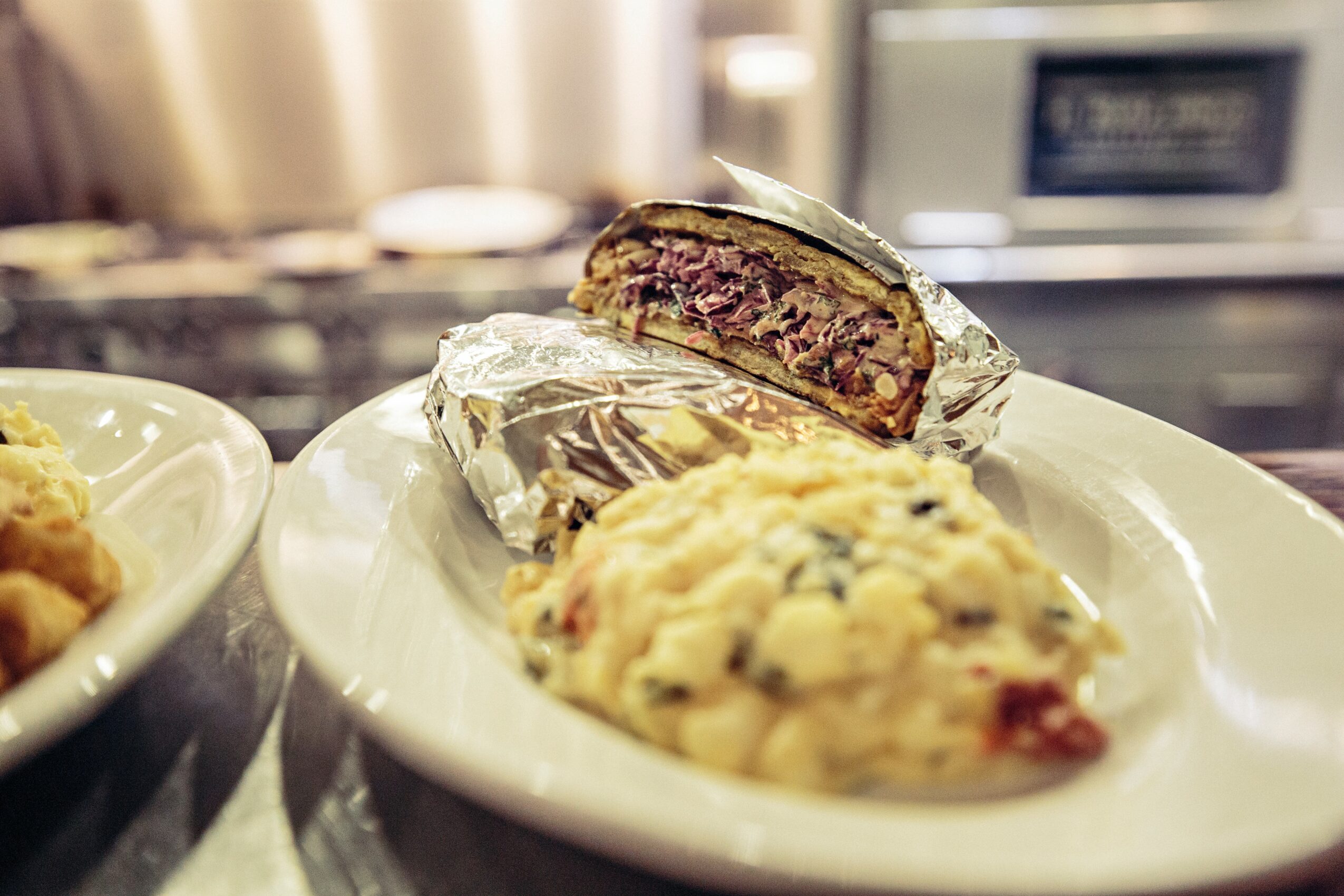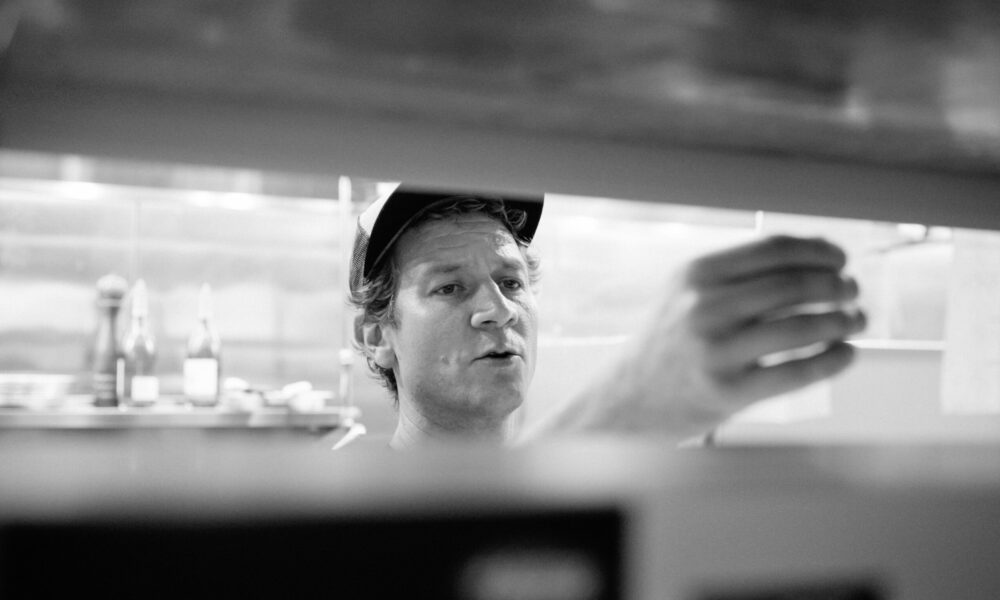

Today we’d like to introduce you to Shawn Stokes.
Hi Shawn, we’d love for you to start by introducing yourself
My working life can be divided broadly into two distinct careers, which came together when I opened Luna. I started working in restaurants at age 14, as a dishwasher at a casual Florida seafood restaurant. I was soon promoted to the raw bar station, where I learned to work as a line cook. Over the next 10-15 years, I worked every position in the restaurant industry and attended culinary school at Johnson & Wales in Charleston, SC.
I worked in everything from casual diners to the Ritz Carlton. It was at the Ritz Carlton in 1999-2000 where I worked under some of the most exploitative in the industry. They worked us long hours with no breaks. At the end of an 8-hour day, you were expected to punch out and continue working off the clock. The only way to get promoted was through the recommendation of your direct supervisor, and if you didn’t work off the clock, you’d never get promoted.
I decided then that I should leave the industry and carve out a different career path. I returned as an adult student to the College of Charleston and got a BS in international business. While in school, I grew interested in microfinance, and upon graduation, moved to DC for a job with FINCA, a microfinance non-profit working in over 20 countries. This was my entry point into a decade of work in international development. Most of my work in development stayed focused on food and agricultural industries, finding triple bottom line solutions—often called 3E solutions (Economy, Environment, Equity)—to make them more sustainable.
Most of this work took place in South and Central America. I worked for two years as a Peace Corps volunteer, where I lived and worked with Ecuadorian coffee growers, teaching them how to improve their organic farming techniques and how to make value-added products from their harvests. I worked with Brazilian cattle ranchers to reduce their impact on the Amazon rain forest without harming their economic viability. I worked with Mexican shrimp fishermen to reduce the impact of drag nets on coral reefs in the Sea of Cortez.
My wife and I moved to Durham to go back to school—she is in nursing at UNC, and me in a Master of Public Policy program at Duke. After graduation, I continued to work at Duke for a few years and later co-founded research and consulting firm. After a few years, I realized Durham was growing fast and there was a lot of demand for restaurants and cuisines that simply weren’t represented here. It was at that point that I decided it was a good time to open a restaurant. But I would only do it if I could do it in a way that was sustainable. I would pay living wages. I would provide flexible schedules that allowed for work-life balance.
I would source only antibiotic-free meats. I would source locally when possible. I would use only compostable carryout materials. The fusion cuisine at Luna is called South American meets American South. It’s these two careers—cooking in the American South, and development in South America—merged into one. While in South America, I realized just how similar the cuisine is to Southern cuisine. In Ecuador, Peru, Bolivia, and Colombia especially, they eat lots of greens, lots of pork, and lots of hominy (though whole instead of ground into grits). So, it was very easy and seemed almost natural to fuse the two cuisines together.
Today, the original location where Luna opened is over six years old. In February 2020—a mere weeks before the pandemic—we opened a second location in Carrboro, NC. While both locations struggled greatly during the pandemic, both are still open today and working their way back to pre-covid revenues.
I am currently in the process of opening two new businesses in downtown Durham. The remedy Room will be a casual bar with a 19th-century apothecary theme, and Rubies on Five Points will be a bar and intimate music venue. Each is set to open in late 2021.
I’m sure you wouldn’t say it’s been obstacle-free, but so far would you say the journey has been a fairly smooth road?
There have been countless obstacles and challenges. I learned so much in the process to open the restaurant that I’ve considered writing a book about it. Most people think about developing a team of employees that will work at the restaurant. But few people think about the team of professionals one needs before you even break ground on construction.
You need qualified attorneys, architects, general contractors, bookkeepers, accountants, etc. When I opened Luna in 2015, I didn’t realize how important it is to properly vet these professionals for their skills and experience. It ended up costing me tens of thousands of dollars, and many sleepless nights. I never anticipated how difficult it is to manage different personalities.
Sure, it’s difficult to find good, reliable, hard-working, skilled employees. But none of that matters if those individuals don’t work well together because of personal differences, making it exponentially more challenging to build a team.
Thanks – so what else should our readers know about Luna Rotisserie?
Luna Rotisserie is a full-service restaurant serving a fusion cuisine called, South American meets American South. We’re committed to a suite of sustainability commitments while maintaining an affordable menu and comfortable setting welcoming to everyone.
We’re proud of unique dishes like our patacon pisao–a traditional Venezuelan sandwich that uses fried, pressed, unripe plantains in the place of bread. Similarly, we have unique empanadas, like our pork carnitas with hominy and collard greens. For bar offerings, we have an array of craft cocktails that span the traditional–pisco sour–to the new and innovative–The South Star.
A cocktail of Bulleit bourbon with lemon juice, maple syrup, and a little muddled jalapeno. Our beer selection is almost entirely North Carolina beers, while our wine selection is almost exclusively South American.
What do you like and dislike about the city?
I love that our city of Durham is small in size, but has many of the offerings of a larger city. We have Broadway shows and concerts at DPAC. We have many great restaurants to choose from. We have a very diverse population representing many races, religions, sexual orientations, and countries of origin. And while we have all these amenities, we lack the many downsides of larger cities. Housing is still affordable, We don’t suffer from heavy traffic. We have plenty of forests and green spaces available within minutes. I still wave and smile at people when passing on the street.
What I like least about the city is an increasingly difficult path to entrepreneurship available to low-income citizens. As the city has rapidly grown, the cost of permits, increased regulations, the bureaucracies who control them, and the costs and time it takes to navigate them are all working heavily against the average citizen in pursuit of the American Dream to work for themselves, and in favor of the wealthy billionaire developers and commercial franchises who are unfazed by these costs.
My fear is that if these paths to entrepreneurship and small business are further constrained, then instead of working for themselves. citizens will have no other option but to work as hourly employees for the Starbucks, Chipotles, and Urban Outfitters of the world. And if that happens, Durham will cease to become this cool, unique, weird city, and transition into a McDurham identical to almost every other city in America.
Pricing:
- Our dishes range from $10.50-$16.50
Contact Info:
- Email: [email protected]
- Website: lunarotisserie.com
- Instagram: @lunarotisserie
- Facebook: @lunarotisserie
